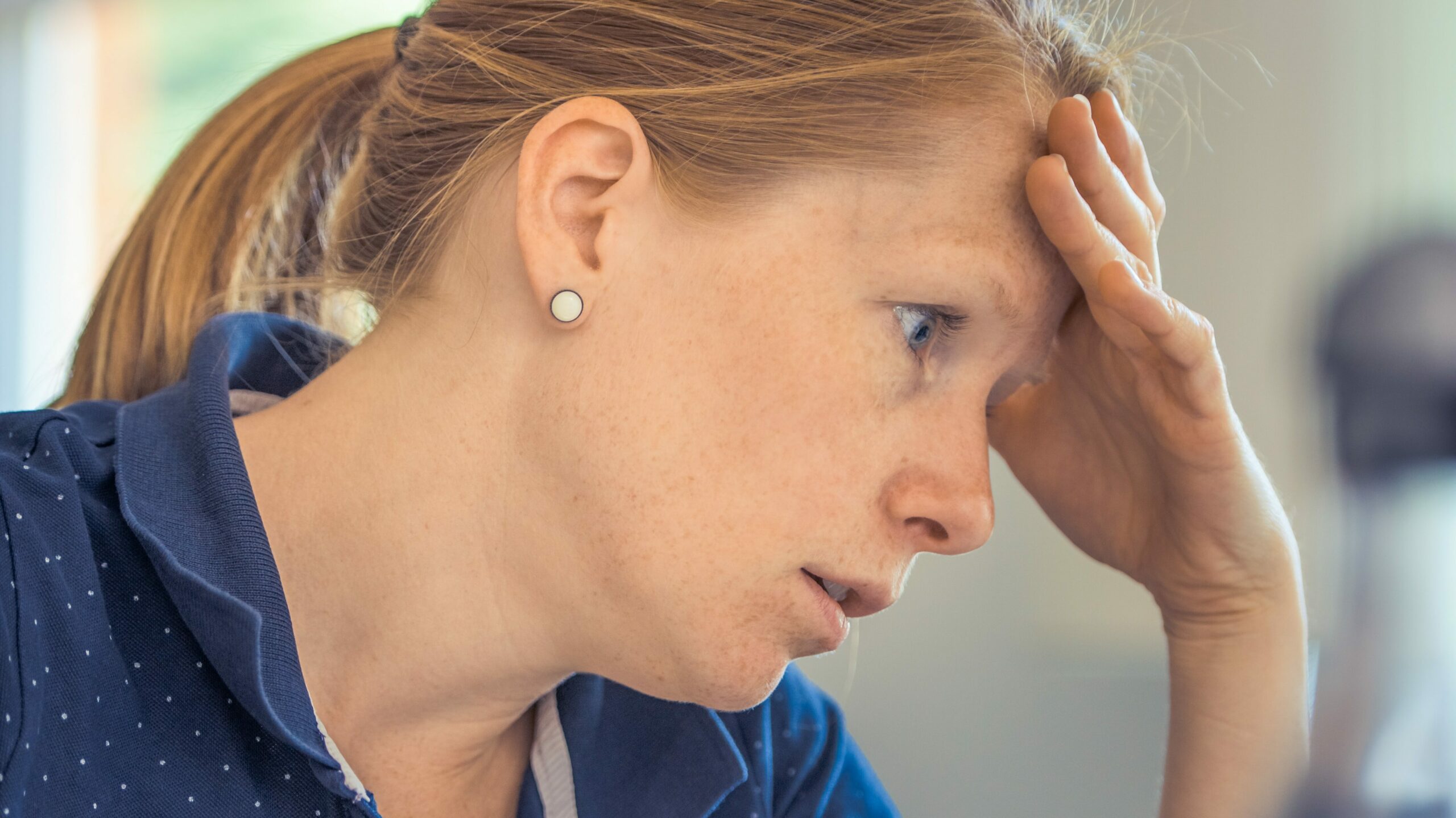
by Dr Sophie Genoni of Femma

Health problems can be a source of worry for most women. It can be daunting to notice new symptoms in yourself and think about all the potential causes for those symptoms. Particularly now with Google available at our fingertips, women can search for answers online, with no clear delineation between correct and incorrect information. Some women may worry more about their health than others, to the degree that it impacts their function on a regular basis. Femma GP Dr Sophie Genoni will discuss everything you need to know about health anxiety – what it is, how you might know if you have it, and what to do about it.
Nearly half of Australians experience a mental health condition in their lifetime. In any one year, around 2 million Australians are experiencing an anxiety condition, and women are more likely to experience anxiety than men. The number of people experiencing anxiety symptoms has increased in recent years, particularly during the COVID-19 pandemic.

Anxiety is driven by the sympathetic (‘fight or flight’) nervous system. It is part of our normal bodily function for our sympathetic nervous system to activate in situations where there is a threat or we need to act quickly. Anxiety occurs when our sympathetic nervous system is activated to an excessive degree, or in situations where it is not appropriate. Anxiety can occur in response to genuine worries or concerns, but can also occur without a particular trigger. The main symptoms of anxiety are excessive worry, overthinking, difficulty concentrating and thinking, and often also low mood. The physical symptoms of the sympathetic nervous system include racing heart, trouble breathing or tight chest, sweating, muscle tension, and gastrointestinal upset. A panic attack is when the sympathetic nervous system is activated very quickly and to an extreme level, and this can be a frightening experience.
Health is a concept that may mean different things to each individual, and can be influenced by their age, values, background and culture. The concept of health extends beyond physical health, and can also include mental and social health. Whilst traditionally health can be considered the complete absence of any disease, individuals with chronic medical conditions may still consider themselves healthy if their conditions are well controlled. Likewise, individuals with a minor health condition may find themselves impacted beyond what is obvious to others.

Health anxiety occurs when there is excessive worry about physical symptoms or health conditions. It can occur in people who are healthy, in people with minor symptoms, or in people with genuine major medical conditions. This excessive worry about symptoms or conditions leads to overthinking, searching online for answers and repeatedly seeking medical attention for tests and diagnoses. Often, even with normal tests and reassurance from health practitioners, the worry persists, and interferes with daily functions such as work, parenting and social life. People with health anxiety may experience anxiety or panic symptoms when health is a topic of conversation, and may avoid locations that are health related. Almost 6% of the Australian population experience some degree of health anxiety.
Health anxiety may be something you need to discuss with your GP if you:
– Are worrying a lot about symptoms that you are experiencing
– Find yourself checking your body for symptoms on a regular basis
– Worry that you have, or may develop, a serious medical condition
– Frequently search online about symptoms or health conditions
– Experience physical symptoms of anxiety or panic in situations that are health related
– Avoid discussing health topics or being in situations that are health related
– Are feeling negatively impacted by your search for answers about your health
– Have difficulty concentrating on areas of your life that aren’t related to your health or symptoms.

Some self-management steps for health anxiety can include:
-Speaking to a trusted friend or family member for support and understanding
– Practice distraction techniques when you become focused on health worries, such as enjoyable activities, everyday household tasks, meditation or outdoor movement.
– Trying to decrease the amount of time spent worrying about your health concerns by confining it to a particular time of the day.
– Writing down what your specific worries and concerns are, and challenging whether those worries are helpful to you.
What am I most worried about and is there factual evidence that I should be worried about this?
What is the most likely or most realistic cause for my symptoms?
How does worrying make me feel, and is this helpful for me?
What outcome would make my worry go away?
– Using relaxation techniques if you feel panicked by your health anxiety
Breathing re-training: Breathing in for 4 seconds, holding for 2 seconds, and breathing out for 6 seconds.
Progressive muscle relaxation: Gently tense each muscle group for 5 seconds, then relax for 10 seconds, working your way around your body.
If you feel that your health anxiety is not manageable with these simple measures, you can speak to your GP for further support. Directed psychological strategies such as Cognitive Behavioural Therapy and Acceptance and Commitment Therapy can be helpful for managing the thought patterns associated with health anxiety.
References
Australian Commission on Safety and Quality in Healthcare. 2022. Kidney infections and urinary tract infections (Accessed: https://www.safetyandquality.gov.au/our-Australian Bureau of Statistics. 2018. Mental health, 2017-18 (Accessed: https://www.abs.gov.au/statistics/health/mental-health/mental-health/latest-release)
Australian Institute of Health and Welfare. 2020. Snapshot: Mental health (Accessed: https://www.aihw.gov.au/reports/australias-health/mental-health)
Centre for Clinical Intervention. 2020. Breathing Retraining (Accessed: https://www.cci.health.wa.gov.au/~/media/CCI/Mental-Health-Professionals/Anxiety/Anxiety—Information-Sheets/Anxiety-Information-Sheet—08—Breathing-Retraining.pdf)
Centre for Clinical Intervention. 2019. Information sheets: Anxiety (Accessed: https://www.cci.health.wa.gov.au/Resources/For-Clinicians/Anxiety)
Centre for Clinical Intervention. 2020. Progressive Muscle Relaxation (Accessed: https://www.cci.health.wa.gov.au/~/media/CCI/Mental-Health-Professionals/Anxiety/Anxiety—Information-Sheets/Anxiety-Information-Sheet—09—Progressive-Muscle-Relaxation.pdf)
Centre for Clinical Intervention. 2020. Workbook: Helping health anxiety (Accessed: https://www.cci.health.wa.gov.au/Resources/Looking-After-Yourself/Health-Anxiety)
Sunderland, Matthew et al. 2018. Health anxiety in Australia: prevalence, comorbidity, disability and service use. British Journal of Psychology (2018) 202: 56-61 (Accessed: https://www.cambridge.org/core/journals/the-british-journal-of-psychiatry/article/health-anxiety-in-australia-prevalence-comorbidity-disability-and-service-use/2733A0EF35C0B649D29BDA22940F4BDE)